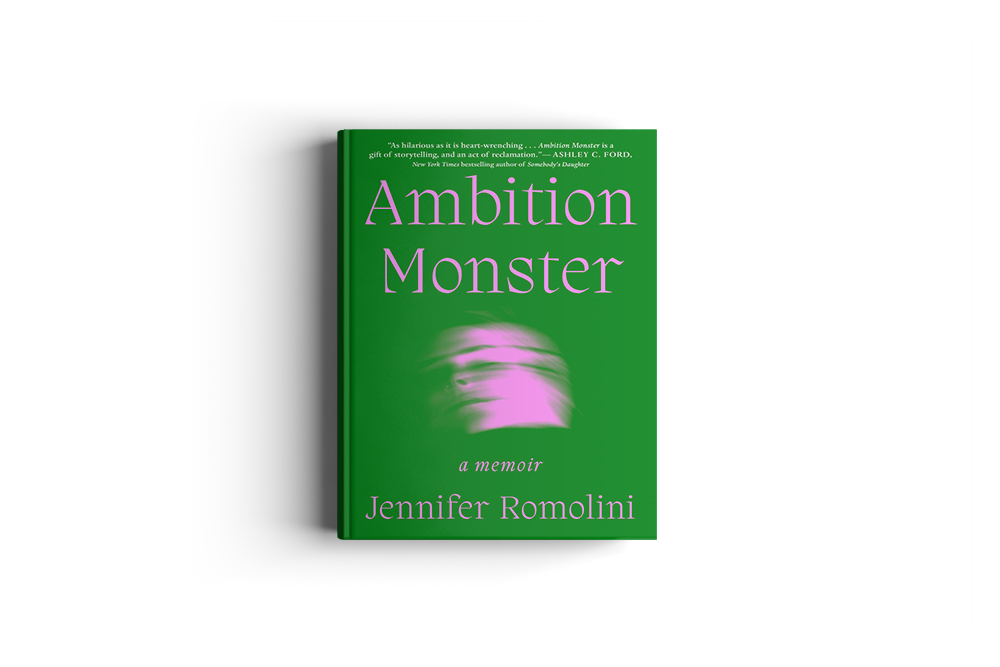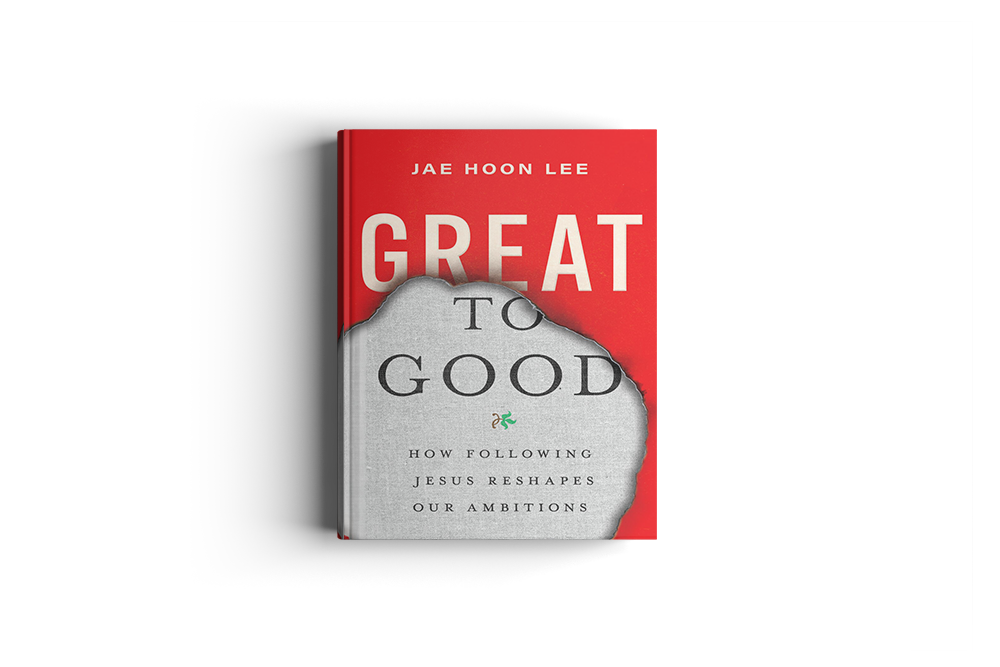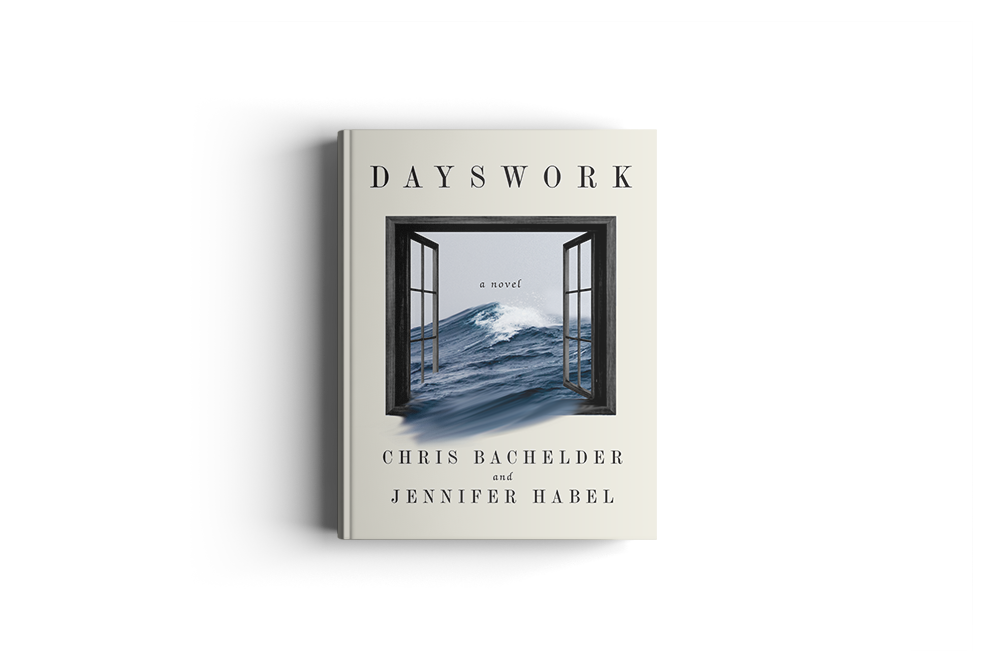
Ambition Monster: A Memoir
By Jennifer Romolini
(Atria Books 2024)

Great to Good: How Following Jesus Reshapes Our Ambitions
By Jae Hoon Lee
(IVP 2024)

Dayswork: A Novel
By Chris Bachelder and Jennifer Habel
(W.W. Norton 2023)
I arrive at my friend’s house just after sunrise. She’s left a blue Dutch oven on the table in her carport. I lift the lid — and steam escapes; the scones are still warm.
My friend has invited me to pray here, in her garden, because this is the ground she began tending when the world split at the seams. A single Job-like weekend left her bereft, and the aftershocks of grief were noisy at first. Then: space between words. Two years my friend stayed home to lick her wounds. Two years she hummed a single stanza of a single Psalm. The only place my friend could hear God was in this garden, her hands in the dirt, and even then, the voice was barely audible, though it whispered of love.
Two years — and the tossing sea calmed. My friend then sent an invitation by way of an email. “Finally able to breathe again, I want to see if other folks can hear God’s voice in my garden, too.” Her signature line included a verse: Love more and more, aspire to live quietly, mind your own affairs, work with your hands. It’s only one of three places where the New Testament speaks explicitly of ambition.
***
In her memoir, Ambition Monster, Jennifer Romolini details grander ambitions than a backyard garden. Romolini narrates her climb to a “coveted C-suite job,” then the precipitous fall from professional grace, when, on a Monday afternoon at 3:51, she is suddenly fired and escorted from the office, boxes in hand.
“Where does ambition first spark?” Romolini asks. In one recognizable form, ambition is kindled by want. You work to keep the lights on, as Romolini’s teenage parents had. Ambition is hand-to-mouth; it is hungry. But as Romolini’s memoir bears out, there is another form of ambition and appetite. This one grasps for recognition; it reaches for somebodiness. What this ambition hopes to deliver is “unambiguous” success. The first ambition might be satisfied with a house in the suburbs like the one Romolini’s parents finally bought with a balloon mortgage. But the second, this craving for whispering love? It can build a house of cards, which Romolini must finally learn.
In the clear-cut field of unemployment, ambition constricts to the domestic sphere. Romolini tends to her neglected marriage. She cares for her needy child. With a friend, she takes a class on woodworking and makes spoons and bowls and chairs. A year later, she is employed again — and writing a book about her conversion to a more “spacious, private and quiet” life.
Ambition Monster is a cautionary tale, and the narrative structure is familiar enough. Success? Bad. Failure? Redemptive and necessary. It’s a story that chastens human grandstanding. But beyond straining credulity, the book might also feed overly simplified formulations of ambition.
In Jae Hoon Lee’s Great to Good: How Following Jesus Reshapes Our Ambitions, I find such suspicions of ambition. “The church should strive to be good rather than great,” writes the Korean pastor. The church should follow Jesus’s example of “humility, service, and meekness instead of trying to elevate itself unnecessarily.” On the surface, the argument — of ambition as antithesis to virtue — seems convincing enough, especially given the recent public disasters of many celebrity pastors and American megachurches. Still, I am hesitant to reject ambition wholesale. Who is to tell the difference between that which builds a tower, like the one idolatrously thrown up in Genesis 11, and that which builds a temple?
When is ambition bluster and bravado — and when is it God-given bravery and faith?
“Take two people,” the narrator’s husband proposes in Dayswork, a novel co-written by Chris Bacheleder and Jennifer Habel, as the fictional couple considers the nature of ambition in producing great art. “Person A abandons his family, moves to Tahiti to paint, behaves reprehensibly on the island, and produces celebrated and influential works of art. Person B abandons his family, moves to Tahiti to paint, behaves reprehensibly, and turns out to be not very good at painting.” The thought experiment tests the couple’s feelings toward the 19th-century author of Moby Dick, Herman Mellville, who might have been an abusive husband. Does great art justify vice? Could Melville have written Moby Dick and been, at the very same time, an attentive husband and father? Or did America’s greatest novel demand a ruthless selfishness?
I do not think, as one literary critic does, that Moby Dick “justifies” Melville’s life. Great art is not worth shipwreck, and human effort cannot justify a life. And yet: Am I not glad for Moby Dick in the world? What is ambition if not energy to build and birth, cultivate and create? Ambition can plant a garden. Ambition can write a novel. And even in the C-suite, ambition can be wind in the sails of good and holy work.
If there is a material difference — between towers and temples — maybe it’s less a matter of scale. Maybe the rotting right hand of ambition is exposed in what we seek and seek to secure. A name. A legacy. Maybe corrupt ambitions are recognized by their neglect, as our fearfully impatient mortality demands the kind of long, manic hours Melville spent in his study, refusing food and drink.
***
I remember the book of poetry my friend left for me that morning in her garden: beside the Dutch oven, the thermos, and the jam. Mary Oliver’s poem, “Messenger,” was collected in a volume published after her turn toward Christian faith. In the poem, the speaker’s work is “loving the world.” It is telling the moth and the wren and the “sleepy dug-up clam” of eternal good news, “that we live forever.”
Oliver captures that a holy life’s work is not anxious toil but joyful “gratitude, to be given a mind and a heart/and these body-clothes.” Her vision is hardly the cramped fear that produced Moby Dick and self-published Clarel, the epic poem Melville funded with an amount roughly his annual salary, a sin for which his daughter — in hand-me-down clothing — never forgave him.
“Are my boots old? Is my coat torn?
Am I no longer young, and still not half-perfect? Let me
…..keep my mind on what matters,
which is my work,
which is mostly standing still and learning to be
…..astonished.”
I read Oliver’s poem that morning in the garden my friend has diligently weeded and tended, planted and watered. Looking up, I watch a rabbit nibble at a plant my friend has staked along the fence. Here today, gone tomorrow, I can’t help but think ruefully: every blade of grass and every human life.
And yet; we live forever, writes Oliver. Tell them.
I find her description bears an uncanny resemblance to my friend’s garden, where I spend a morning considering the yellow finches and the blooming lilacs. It’s a morning I pray and read the book of poetry she has left for me. It’s a morning I hear the voice of God and remember the work of Christian vocation, which is loving the world:
“which is gratitude, to be given a mind and a heart
…..and these body-clothes,
A mouth with which to give shouts of joy
…..to the moth and the wren, to the sleepy dug-up clam,
telling them all, over and over, how it is
…..that we live forever.”





